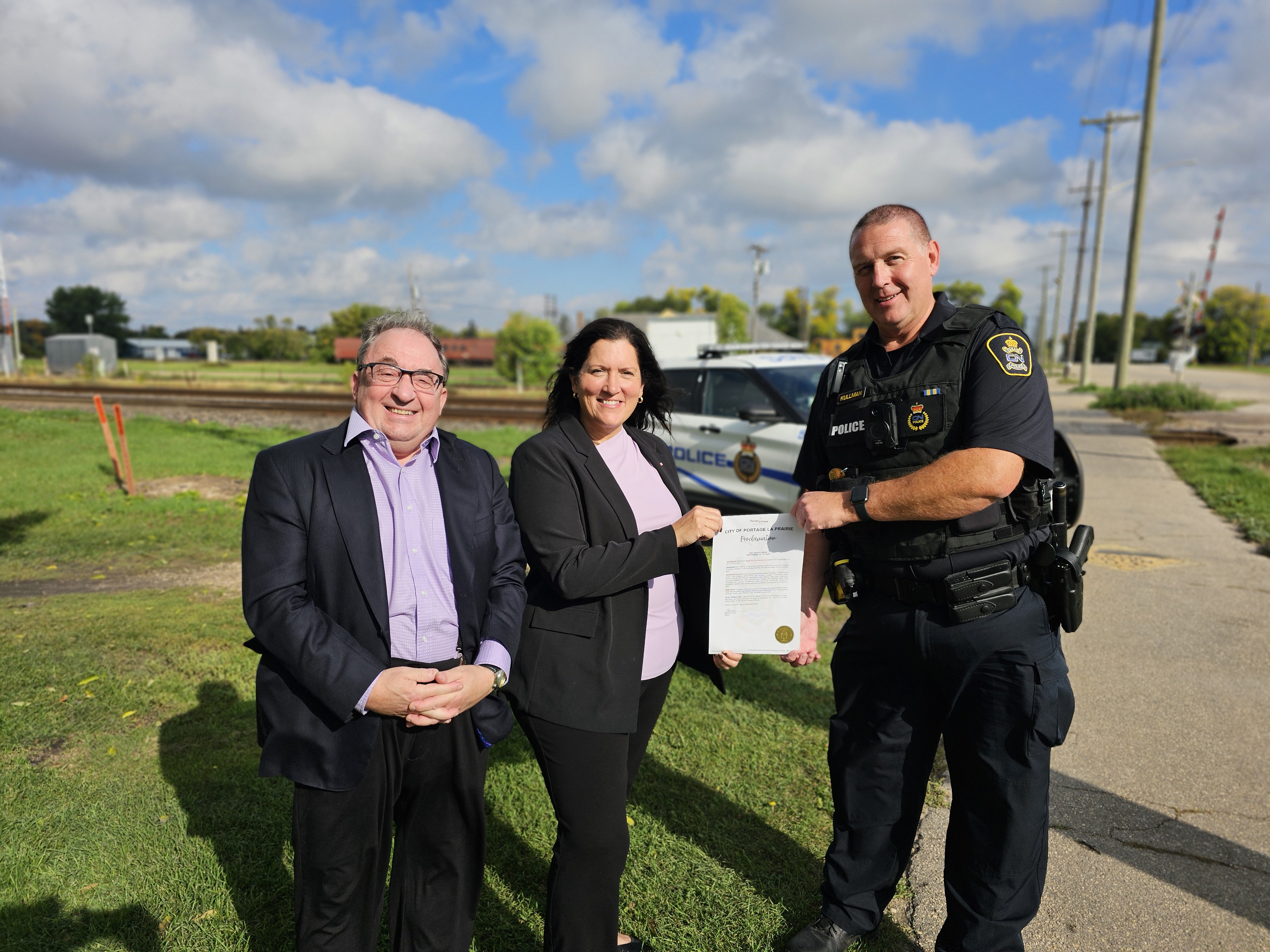The City of Portage la Prairie is officially proclaiming this week as National Train Safety Week, an annual initiative aimed at raising public awareness and preventing tragedies at railway crossings. The proclamation underscores the critical importance of caution in a community where two major national rail lines are a constant presence.
With both CN and CPKC rail lines running through the community, rail safety isn't just important; it is essential.
Mayor Sharilyn Knox highlights the city's support for the campaign.
"As a city, we're happy to proclaim this week as Rail Safety Week. It helps raise awareness, it reminds us all to be cautious at crossings, and hopefully prevents accidents before they happen," she says.
A reminder reinforced by past incidents
The need for increased awareness is reinforced by past local events. Deputy Mayor Joe Masi emphasized the proclamation's role in highlighting ongoing safety concerns.
"It's extremely important from a city council perspective. Unfortunately, we have had a couple of fatalities in the past few years at railway crossings," Masi notes, going on to explain that the goal is to remind people to take the time to be safe around railway crossings to avoid accidents or potential fatalities.
Masi also recalls a simple, timeless safety mantra.
"We used to say, stop, look, and listen. Stop before the crossing with your vehicle, and make sure you have a good distance. Look, make sure you look both ways. And listen for trains and make sure you stay on the proper right of way," he shares.
The stark realities of train safety
CN Police Constable George Kullman detailed the specific risks present in Portage la Prairie. He noted that the city is unique because it contains parallel mainline tracks for two major railways, leading to a high volume of train traffic that makes safety "critically important."
He also provided a sobering statistic on the national scale to illustrate the gravity of the issue.
"I know nationally you're looking at approximately 100 to 150 serious injuries or fatalities. And so our goal ideally is to get that to zero," Kullman says.
A critical point both Masi and Kullman stressed is that crossing the tracks anywhere other than a designated crossing or the bridge is both illegal and extremely dangerous.
"Anywhere else, if you're crossing anywhere else, you're technically trespassing. Which also comes with a potential fine. And it's just not safe," Kullman explains.
He also warned of tripping hazards on the loose ballast between tracks and reiterated that crossings are the only safe, legal places to cross.
Trains cannot stop quickly
A common misconception Constable Kullman addressed is the stopping distance of a train, a fact he says underscores why vigilance is paramount.
"When they're out paralleling the highway, they can get up to 60 miles an hour. The VIA trains can even go up to 70 miles an hour. And if they had to go into a full emergency brake at that speed, it would take them over two kilometres to stop," he explains.
His final advice for the community is a simple but powerful reminder of the unpredictable and powerful nature of trains.
"If you're ever around the tracks, be aware that a train could come at any time. They don't run on a schedule. And like I say, cross where you're supposed to cross," Kullman notes, adding, "It's tough to tell how fast a train is going. So just be very wary of them."
